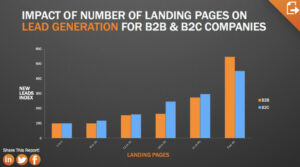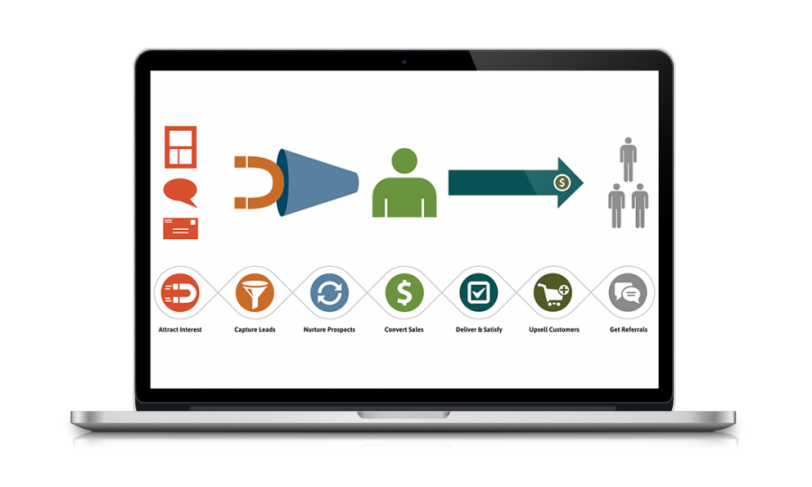- You are here:
- Home »
- Blog »
- Web Design »
- How Many Pages Should Your Website Have?
How Many Pages Should Your Website Have?
 When considering your website’s redesign you may wonder how many pages your website should have. Companies with 51-100 pages on their site generate 48% more traffic than companies with 1-50 pages. To find out how many pages your website should start out with depends on the your business.
When considering your website’s redesign you may wonder how many pages your website should have. Companies with 51-100 pages on their site generate 48% more traffic than companies with 1-50 pages. To find out how many pages your website should start out with depends on the your business.
Companies that have more than 50 employees and have 1000 web pages see 9.5 times more traffic than companies with under 51 pages. The more pages your website has, the more content your business can share. Providing customers with the information they need will attract more quality website traffic that is more likely to become a lead for your sales team.
Your Business Should Have 51-100 Pages To Start
When you build your website, you should have a solid foundation of pages to build on. You want to have all of the basic pages that will explain to customers who you are and what your business offers. With more pages on your site that can speak more directly to your prospects, the higher conversion rate you will have. Instead of sending customers to a generic page listing all of your services in one place, you can get into detail for exactly what service they are looking to invest in and better connect with them on a level that makes them feel that you can help.
Having pages designated to certain products, offers, or messages will increase your search traffic for those particular topics as well. Google will rank your web pages for the specific product that you are speaking about on one page, rather than having one page with a bunch of varying products. Creating these types of pages allows you to guide visitors to a specific place that’s geared toward a goal.
Once your website is launched you can always add more pages.
 What Kind Of Pages Should Your Website Have?
What Kind Of Pages Should Your Website Have?
Static Pages
When small businesses launch a website, 51-100 pages may seem like a lot. However, the more pages you have the more visibility your site will gain. To begin, a business should always have static content pages. These are pages that are necessary to describe to potential customers what your business is. A website should always include a services, products, about, and valued proposition statement. These pages should indicate the industries that you service, and why they need your services.
Blog Posts
Your blog should have a category for each service that you offer. Think of the questions potential customers may have, and then answer them in a blog post. Having content to share is an important part of a website. A blog offers content, insight, and helpful information. It gives consumers a chance to see your business’s vision. Blog posts should include a CTA (Call To Action) graphic that encourages visitors to take immediate action, by clicking, downloading or subscribing.
Your blog is where you can engage with prospects, and share your expertise. Become a reliable source of information for your visitors, share information about new products, company news, or industry trends. This is a great way to build brand awareness. Blogging is an important source of marketing.
It has been reported that businesses who expand their blogging from 3-5 times per month to 6-8 times per month will almost double their leads. B2B companies that blog only 1-2 times per month have 70% more leads then those who don’t blog at all.
Landing Pages
A landing page is an important page to have on your website. It is designed simply to capture your prospects information through a form. This make it possible for a visitor to convert as easily as possible. These pages should be simple, and include only the CTA that allows the visitor to give you their information. The more landing pages your company has the bigger increase for conversions.
Confirmation Pages
When someone fills out a form, they will need to be redirected somewhere to let them know that their information was submitted. This is a confirmation page. You also need to use these confirmation pages to track your conversion rate so you can understand what is working and what isn’t for converting your visitors into your marketing funnel.
How Many Pages Does Your Website Have?
In the comments below tell us if your business has any of these pages in their website design? Do you see an impact with traffic by having more pages on your website?
Does Your Website Have Enough Pages To Be Successful? Get Your Free Website Assessment
If you are in need of a website redesign, we offer several packages to best suit your company’s needs.
Click here to see our web design packages and schedule your free assessment >>

